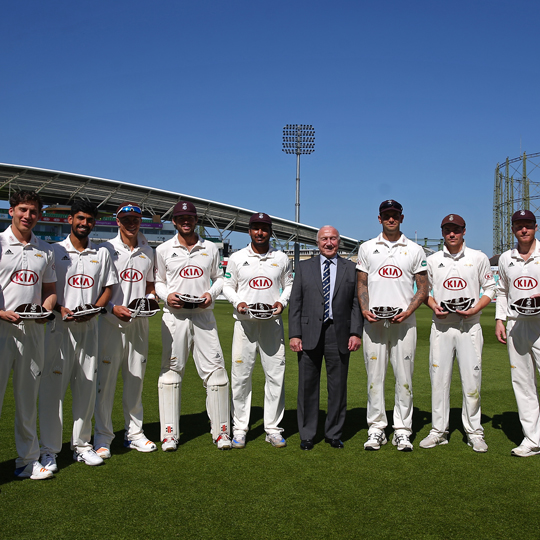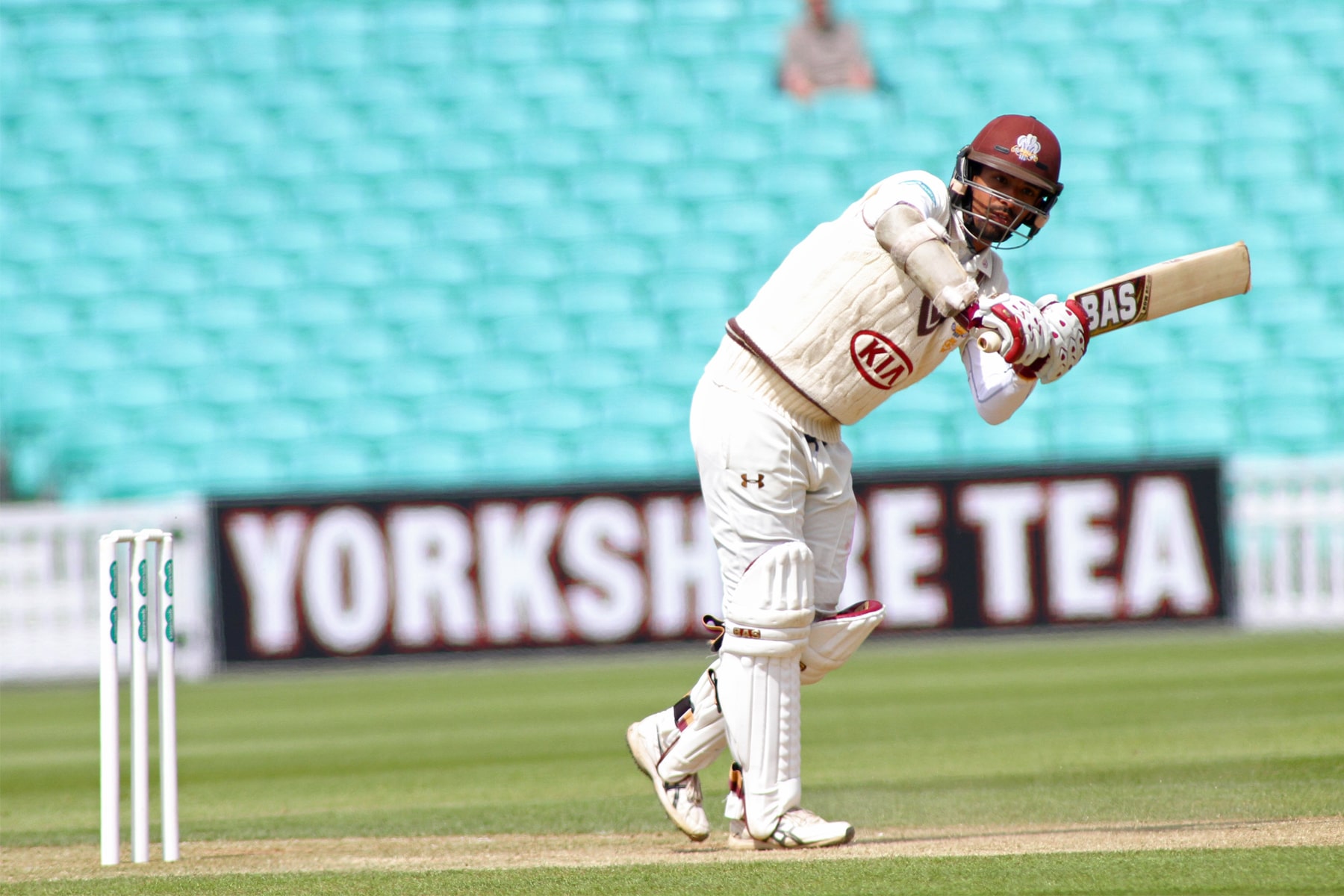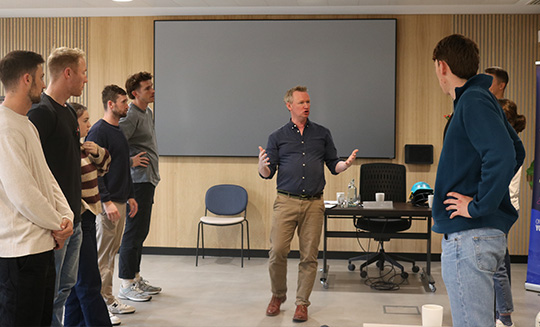PCA PRESS RELEASE
Former Surrey opener moves into second career with former PCA Chairman.
To see more articles, click here
Recently released Surrey batsman Arun Harinath has used his networking skills to ease into a second career with a little help from a familiar face.
The 32-year-old left the Kia Oval at the end of the 2019 campaign after a 13-season stint at his boyhood county which resulted in just under 4,000 runs across his professional career.
Personal development has been a theme throughout Harinath’s on-field performances, often attending PCA Annual General Meetings and building relationships with the players’ association.
PCA Personal Development Manager, Tom Jones, has spoken to Harinath about his transition and how a former PCA Chairman is now his employer…
- At what stage of your career did you start thinking about preparing for your transition?
- I have been preparing for my transition for a while. I went to university after my A-levels and then did a second degree whilst I was playing for Surrey. I never thought at the age of 20 that I would have a professional cricket career at all so it was always in my thinking that I should get the qualifications that would help me pursue a second career.
- At what point did you start to think that you would have to be more proactive gaining future employment?
- I would say in the last three years of my career I have been proactive to ensure that I have built the skills and experience to make me employable when my cricket career did finish.
I had completed a few work experience opportunities in a range of sectors, but I really wanted to start focussing in on what I specifically wanted to do after my career ended. I was more specific with my career planning and started to target where my opportunities might be to gain the correct skills. I used my winters wisely to ensure I maximised my time off.
- Have you always been aiming to find a career in the type of industry you currently work in?
- I think I always wanted to work in sport, on the commercial side / business side but sourcing opportunities in that particular area is tricky. Although I had plenty of experience in the professional sport, there is only so many transferable skills you can apply to the business of sport. I knew that if I wanted to be successful in this industry that networking with the correct type of people would be key.
I didn’t envisage the opportunity to work at A&W Capital was going to arise. We are sports, media, leisure & entertainment investment advisory firm and I hadn’t had much experience in working within corporate finance so I have a lot to learn in a short space of time.

- Describe your emotions on leaving the game as a player and how you managed to motivate yourself to transition into your new career so quickly.
- Inevitably there is a lot of sadness and frustration but that is natural and I took the view that you have to move past that if you want to move on with a career in a different industry.
Part of the process of moving on is to do something new, it’s an uncomfortable feeling going into a new environment but I’ve always enjoyed learning new things and that has certainly helped me in my transition.
.
- You are now employed by a former PCA Non-Executive Chairman, how did that come about?
- I met Matthew Wheeler during my time working in part for FICA and acting as a PCA rep. We spent some time together during that period as I was keen to discuss the future of the sport from my perspective as a player. When I was released from Surrey, I called Matthew as he is a very connected person within the sports industry and I thought he could help me make connections in his network, who could potentially become future employers.Fortunately, the company I now work for (Matthew is the Chief Exec at A&W Capital) were hiring at the same time and after a few meetings / interviews he asked me to join the team.
I feel as though I have been a little bit lucky but there is no doubt the networking I did whilst still a cricketer has been of benefit to me now.
- What would be your advice to current players on planning for a smooth and successful transition?
- Don’t leave it too late to start. You are a long time working in a ‘normal’ job so the more you start thinking about it, and the more you use the resources available to decide what you might do in the future the better.
If counties aren’t helping you with that journey then speak to the PCA. Yes, your cricket career is important, but it is a short career and it goes by quickly, as I know first hand! I feel counties should be actively helping you gain some wider perspective and experience, which counts towards your personal development and should fit around your training commitments.
- How did you utilise support from the PCA in particular your Personal Development Manager in planning for life after cricket?
- The PDMs I worked with were very helpful for me. Whether it was locating work experience opportunities or a soundboard for advice they were always on hand and I had someone there who I could trust to give me advice.
It can be daunting for people moving into a new career, even if you are prepared, so I would always recommend utilising the support that is available for players. The PDMs are a key part of that.
I still consider the PDMs that I worked with people I can call up to get advice and help even in my post cricket career.
Click here for more information on the PCA’s Personal Development and Welfare Programme or contact your regional Personal Development Manager.







